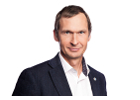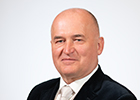Discussion of the nationally significant issue initiated by the Environment Committee: "The Impact of Climate Change on Estonia's Legal Framework and Economy."
Session: 15th Estonian Parliament, 4th sitting, plenary session
Date: 2024-11-21 12:01
Total Speeches: 172
Membership: 15
Agenda Duration: 3h 53m
AI Summaries: 172/172 Speeches (100.0%)
Analysis: Structured Analysis
Politicians Speaking Time
Politicians
Analysis
Summary
A debate of significant national importance on the topic "The Impact of Climate Change on Estonia’s Legal Space and Economy" took place in the Riigikogu, initiated by the Environment Committee. The purpose of the debate was to create a broad discussion before the draft Climate Resilience Act is brought before the parliament. Addresses were given by the Environment Committee chairman Igor Taro, Associate Professor of Climate Physics at the University of Tartu Velle Toll, coordinator of the Estonian Environmental Organizations’ Chamber Maia-Liisa Anton, and the chairman of the board of the Estonian Employers’ Confederation Kai Realo.
The central point of the debate was the scientific consensus on the anthropogenic nature of climate change and the need to rapidly adapt and mitigate its effects. Velle Toll emphasized that climate change is an existential threat and that the 1.5-degree warming limit is practically unattainable globally, therefore accelerated emission reductions are necessary. Maia-Liisa Anton highlighted that the constitutional obligation to protect the natural environment requires the termination of previous subsidies that damage the environment, and criticized the draft’s objectives as being too lukewarm. Kai Realo stressed the need for legal clarity for entrepreneurs to make long-term investments and criticized the draft’s initial version for the absence of impact assessments. The negotiations were sharply polarized, with opposition politicians questioning the scientific consensus and criticizing the green transition as an ideology destroying the economy, while the coalition emphasized the necessity of the law to ensure Estonia’s long-term competitiveness and security.
Decisions Made 1
The sitting was extended until the exhaustion of the agenda item by the Environment Committee's proposal, but no longer than 2 PM. Thirty-one members of the Riigikogu voted in favor, one voted against, and one abstained.
Most Active Speaker
Rain Epler (EKRE faction) was the most active and critical speaker (right) during the debate phase, posing several questions about scientific consensus and economic costs, and delivered a sharp speech during the negotiations, criticizing all the presenters.
Aseesimees Arvo Aller
AI Summary
The Riigikogu will begin a debate on a matter of national importance initiated by the Environment Committee, entitled “The impact of climate change on Estonia’s legal framework and economy,” in which speakers will present and there will be a question-and-answer round; afterwards negotiations will begin and no final decision will be taken; if necessary the session may be extended until 2:00 p.m.
Igor Taro
AI Summary
Igor Taro emphasized the long-term and wide-ranging impact of climate change and the need to define a framework under the Climate-Resilient Economy Act that would lead to net zero by 2050 and keep the global temperature rise within 1.5–2 degrees, taking into account the balance between environmental, economic and social justice, involving stakeholders and planning investments and transitions in the energy sector, transport and food production, so that Estonia can continue to move forward in a sustainable and competitive manner.
Aseesimees Arvo Aller
AI Summary
The vice-chair Arvo Aller thanked the presenter, invited questions, and asked Urmas Kruuse to speak.

Urmas Kruuse
Profiling Eesti Reformierakonna fraktsioonAI Summary
Urmas Kruuse emphasizes that we must find a sensible balance between the pace of climate-change adaptation and its costs, because inactivity could cost us many times more in the future, and the pace at which new knowledge emerges puts pressure on us to act.
Igor Taro
AI Summary
This speech emphasizes that adaptation costs are significant, and one must also take into account the costs of not adapting, for example 1,000 excess deaths per year, and there is a need for legal clarity and support measures for entrepreneurs as well as prudent planning, because the approval of the climate plan by local authorities and appropriate incentives can lead to the achievement of many goals.
Aseesimees Arvo Aller
AI Summary
The speech was simply the invitation for Urve Tiiduse to come onto the stage.

Urve Tiidus
Profiling Eesti Reformierakonna fraktsioonAI Summary
Urve Tiidus argues that people are divided by attitudes into optimists and pessimists, and asks whether we are optimistic or pessimistic about stopping or reversing global warming, considering the significant influence of one Asian power and population projections to about 10 billion.
Igor Taro
AI Summary
Igor Taro emphasizes that Estonia should act as if the glass is half full: take responsibility and set an example among the Paris Agreement signatories, while at the same time being a pragmatic small country and understanding that saving the world does not depend solely on us.
Aseesimees Arvo Aller
AI Summary
During the speech, Rain Epler is asked to come onto the stage.

Rain Epler
Profiling Fraktsiooni mittekuuluvad Riigikogu liikmedAI Summary
In the talk, Rain Epler emphasizes the ingenuity of entrepreneurs and the flow of money, gives an example of the Adani scandal and the over-profitability of solar parks, criticizes subsidies from the state budget directed toward wind energy, talks about the lack of forest maintenance and the resulting forest fires, refers to the IPCC report’s conclusion of increased excess deaths but a larger number of survivors, and at the end asks whether the speech was based on scientific data or propaganda.
Igor Taro
AI Summary
Igor Taro emphasizes sustainable forestry and its important role for economic and climate objectives, specifying that in his introduction today he did not speak about forest burning but about the slowing of growth, and he asserts that forestry is not the root of evil, and that about 15% of employment comes from it, leaving the scientific arguments to the next expert.
Aseesimees Arvo Aller
AI Summary
Vice-chairman Arvo Aller invites Signe Kivi to speak.

Signe Kivi
Profiling Eesti Reformierakonna fraktsioonAI Summary
Signe Kivi emphasizes that, in accordance with good practice, representatives of all factions should participate in the environmental committee, but notes that the participation of members of the Centre Party faction is absent and their voice would then not be heard, and asks which bills have raised the most questions and problems and whether presenting a consensus bill is always possible.
Igor Taro
AI Summary
The speaker says that consensus does not always have to be reached, and the parliamentary decision-making principle means voting; the representation of factions in committees is changing, and currently several practical draft bills are underway on the topics of waste and tire waste and a climate-resilient economy, which promise a lively and diverse debate.
Aseesimees Arvo Aller
AI Summary
Vice-chairman Arvo Aller asks Mart Maastik to come on stage.

Mart Maastik
Profiling Fraktsiooni mittekuuluvad Riigikogu liikmedAI Summary
The landscape notes that climate warming is known, and NASA studies of the last 800,000 years show natural fluctuations up and down during that time, where the highest peaks stood about 100,000 years ago, higher than today, and it asks what could have caused these peaks before human activity about 400,000 years ago.
Igor Taro
AI Summary
They emphasize that the impact of climate change has accelerated due to the Industrial Revolution, and we must find a balance between environmental objectives, economic competitiveness, and social justice, taking into account the general scientific consensus, as well as the health risks faced by low-income populations and the potential rise in heat-related deaths by 2050, without wrecking the economy or neglecting social issues.
Aseesimees Arvo Aller
AI Summary
The vice-chairman Arvo Aller turns to Mait Klaassen with a request.

Mait Klaassen
Profiling Eesti Reformierakonna fraktsioonAI Summary
He emphasizes that we have two approaches: the old management model focuses on firefighting, but we need a new, fast and globally oriented model; otherwise we'll be left with a wasteland.
Igor Taro
AI Summary
Igor Taro said that the draft for a climate-resilient economy should not focus solely on extinguishing fires, but must set forward-looking targets and ensure the availability of technology, and Estonia must be an active participant in the process, not a country forced into a situation where someone else has to act — everyone must contribute.
Aseesimees Arvo Aller
AI Summary
Jüri Jaanson asked a quick question, and Igor gave him a quick answer, after which a thank you followed.

Jüri Jaanson
Profiling Eesti Reformierakonna fraktsioonAI Summary
Jüri Jaanson said that Estonia should, in Parliament and in the Environment Committee, show the direction of climate-change solutions and discuss whether to follow a sustainable, shared path with others or to be an example and a spokesperson for the whole world.
Igor Taro
AI Summary
We must remind ourselves of our core purpose and direction and adhere to international obligations, especially the requirements of the European Green Deal, but at the same time avoid social backlash and excessive effort, in order to maintain the long-term objective and ensure that no one is left behind.
Aseesimees Arvo Aller
AI Summary
Vice-Speaker Arvo Aller informed that the time for questions and answers had ended and that the next item will be a presentation, the speaker being Velle Toll, associate professor of climate physics at the Institute of Physics, Faculty of Natural and Exact Sciences, University of Tartu, adding that some materials are on the shelves and every member of the Riigikogu may use them if necessary, and that the presentation will last 20 minutes, with 40 minutes for questions and answers afterwards.
TÜ füüsika instituudi kliimafüüsika kaasprofessor Velle Toll
AI Summary
The core of the presentation is that climate change is anthropogenic and poses a serious threat, and if emissions continue in the same way, global warming could reach three degrees by the end of the century, and we have only about six years to avert a prolonged 1.5-degree warming, therefore there is a need for rapid mitigation and adaptation, increasing climate education, and close cooperation between the state, local governments, and businesses.
Aseesimees Arvo Aller
AI Summary
The vice-chair thanked the presenter, stated that there were questions, and turned to Urve Tiidus, asking her to answer.

Urve Tiidus
Profiling Eesti Reformierakonna fraktsioonAI Summary
Urve Tiidus emphasized that Estonia is a maritime country and that flood risks are increasing along the Baltic Sea coast, and she asked lawmakers and planners for practical guidance for the future, including whether it makes sense to build right at the very edge of the sea and how to plan.
TÜ füüsika instituudi kliimafüüsika kaasprofessor Velle Toll
AI Summary
In Estonia, flood risks have been mapped, including coastal flood risks, but the rising sea level due to climate warming is not taken into account, and adaptation measures are still in the early stages, although there are hard scientific data that should be applied.
Aseesimees Arvo Aller
AI Summary
The speech asked Jüri Jaanson to come on stage.

Jüri Jaanson
Profiling Eesti Reformierakonna fraktsioonAI Summary
Jüri Jaanson emphasizes that science confirms human-caused climate change and our ability to influence the changes related to it, but at the same time asks whether humanity can stop these changes or reverse them, and how large a role external factors, such as the Sun, play.
TÜ füüsika instituudi kliimafüüsika kaasprofessor Velle Toll
AI Summary
They emphasize that climate change is anthropogenic and depends on our choices: if we burn twice as much fossil fuels, warming will be twice as intense and we cannot return to the pre-industrial climate, but once climate neutrality is achieved warming will stop, and we must adapt, because about three degrees of warming by the end of the century will make the world vastly different and equatorial regions will be uninhabitable for much of the time due to heat as well as food production.
Aseesimees Arvo Aller
AI Summary
The vice-chairman Arvo Aller asks René Kokk to speak.
AI Summary
Rene Kokk claims that data from 1850–2020 are limited, and the narrative about climate change seems similar to a commercial sales pitch; therefore the topic should be addressed calmly and not aggressively, so that society and young people can better adapt to it.
TÜ füüsika instituudi kliimafüüsika kaasprofessor Velle Toll
AI Summary
Over geological timescales, the climate has changed naturally, but human activity causes additional warming, and to curb it we need climate policy and a reduction of greenhouse gases.
Aseesimees Arvo Aller
AI Summary
Thanks, Igor Taro is absent, so Mart Maastik steps up.

Mart Maastik
Profiling Fraktsiooni mittekuuluvad Riigikogu liikmedAI Summary
The landscape notes that, based on research by NASA scientists, over the last 800,000 years the climate has fluctuated roughly every 100,000 years, and the current temperature has not yet risen as high as it was 100,000 years ago, and it asks what caused these temperature fluctuations and peaks before human-caused climate warming.
TÜ füüsika instituudi kliimafüüsika kaasprofessor Velle Toll
AI Summary
He emphasized that, although the climate has in the past changed due to natural factors, since the second half of the 20th century at least 90% of the warming is caused by human activity, and today's climate changes are occurring much faster, with human activity being the dominant force.
Aseesimees Arvo Aller
AI Summary
A plea was addressed to Rain Epler in the speech.

Rain Epler
Profiling Fraktsiooni mittekuuluvad Riigikogu liikmedAI Summary
Rain Epler posed two questions: how to explain the occurrence of earlier climate events, such as larger floods and warmer seasons, before the significant onset of human-caused warming, and how to approach scientific consensus and whether dissenting opinions can drown out voices in universities and at conferences.
TÜ füüsika instituudi kliimafüüsika kaasprofessor Velle Toll
AI Summary
The author of the presentation, Velle Toll, explains that his research group studies the climate impact of human activity and tries to clarify how large this impact is and how intense future warming could be, focusing on both anthropogenic greenhouse gases and aerosols, and has published papers in the world's most prestigious journals such as Nature and Science.
Aseesimees Toomas Kivimägi
AI Summary
During the talk, people interrupt each other; someone apologizes and asks whether the talk has reached its end or whether anyone would like to speak further.
TÜ füüsika instituudi kliimafüüsika kaasprofessor Velle Toll
AI Summary
The speaker wanted to say something else.
Aseesimees Toomas Kivimägi
AI Summary
Vice-chairman Toomas Kivimägi said: "Of course!" and apologized sincerely.
TÜ füüsika instituudi kliimafüüsika kaasprofessor Velle Toll
AI Summary
Velle Toll said that there were really a lot of questions, but he picks out a couple of them.
Aseesimees Toomas Kivimägi
AI Summary
He confirms that you have this right, and apologizes for the confusion.
TÜ füüsika instituudi kliimafüüsika kaasprofessor Velle Toll
AI Summary
Climate science has rapidly developed over the last couple of decades, and methods have been developed to assess the probability and magnitude of extreme events arising from anthropogenic climate warming, and the Intergovernmental Panel on Climate Change (IPCC) synthesizes this best scientific knowledge about climate change.
Aseesimees Toomas Kivimägi
AI Summary
The vice-chairman, Toomas Kivimägi, thanks and says that, because of many inquirers, he saves time.

Tiit Maran
Profiling Fraktsiooni mittekuuluvad Riigikogu liikmedAI Summary
They ask how a consumption-driven economy that keeps growing fits with the goal of mitigating climate change.
TÜ füüsika instituudi kliimafüüsika kaasprofessor Velle Toll
AI Summary
To reach a climate-neutral global economy and to ensure the sustainable functioning of humanity on Planet Earth, there are two important changes: to produce and consume differently and to switch to renewable energy, and to halt the ongoing growth of primary energy production and consumption, because resources are limited — this is a fundamental social and economic change, which is also emphasized in IPCC reports.
Aseesimees Toomas Kivimägi
AI Summary
This is a short, direct plea addressed to Anti Allas.

Anti Allas
Profiling Fraktsiooni mittekuuluvad Riigikogu liikmedAI Summary
Anti Allas asks whether the climate crisis can be solved even if consumption grows, and whether climate science also includes developing knowledge to convey this message to people, and whether education is the key factor in this solution.
TÜ füüsika instituudi kliimafüüsika kaasprofessor Velle Toll
AI Summary
Climate education and climate awareness are at the center, and economic activity must fit within the limits of nature; otherwise, nature will not be able to provide us with economic and social benefits in the future.
Aseesimees Toomas Kivimägi
AI Summary
At the start of the speech, Mait Klaassen is invited onto the stage.

Mait Klaassen
Profiling Eesti Reformierakonna fraktsioonAI Summary
Mait Klaassen emphasizes the impact of human-caused climate change that has become visible during the COVID period, discusses in the context of the forest war that every ton of fossil carbon taken from underground adds carbon to the atmosphere, is against the use of biomass-derived carbon, and asks whether fossil carbon could be replaced by biomass.
TÜ füüsika instituudi kliimafüüsika kaasprofessor Velle Toll
AI Summary
According to the speaker, nature is our greatest ally in the fight against climate change and in adapting to it, and the carbon sequestration of forests and oceans is critical, but a warming climate threatens it and achieving net-zero emissions in many sectors is challenging, therefore the production of durable wood-based products should be used judiciously and avoid using large quantities of wood for heating, while at the same time taking biodiversity and other environmental aspects into account.
Aseesimees Toomas Kivimägi
AI Summary
The vice-chairman Toomas Kivimägi turns to Hanah Lahe and asks her for something.

Hanah Lahe
Profiling Fraktsiooni mittekuuluvad Riigikogu liikmedAI Summary
Hanah Lahe thanked for the substantive presentation and the attached materials and asked to provide thoughts and proposals for discussing the Climate-Resilient Economy Act bill in the Riigikogu, asking which problems or bottlenecks she sees in the bill and what the Riigikogu should pay more attention to.
TÜ füüsika instituudi kliimafüüsika kaasprofessor Velle Toll
AI Summary
He emphasizes that the time to reach climate neutrality is less important than the trajectory, and one must take into account cumulative emissions and the emissions of this period, and ask whether the current direction is optimal, rather than relying too much on future technologies.
Aseesimees Toomas Kivimägi
AI Summary
The speech begins with a brief prayer inviting Andres Sutt to speak.
Andres Sutt
AI Summary
Andres Sutt emphasizes that human activity leaves an environmental footprint, and the growth of well-being and the economy is largely at the expense of nature, but the past cannot be changed and we must shape the future, asking how much technological development can reduce the footprint.
TÜ füüsika instituudi kliimafüüsika kaasprofessor Velle Toll
AI Summary
In a lecture, it is stated that emissions arise mainly due to the high consumption of wealthy countries, and their distribution is influenced by population, wealth, and the use of primary energy, and although technology is only one factor, in order to achieve global goals it is necessary to reduce the emissions arising from the consumption of wealthier countries, while ensuring the needs of developing countries and social justice, and acting within the limits of nature.
Aseesimees Toomas Kivimägi
AI Summary
The vice-chairman invited Anti Poolametsa to take the floor.

Anti Poolamets
Profiling Eesti Konservatiivse Rahvaerakonna fraktsioonAI Summary
Anti Poolamets recalls a clip from the U.S. Congress in which climate policymakers, who themselves were the most climate-anxious, could not state the magnitude of the human-caused CO₂ share, and asks, as a scientist of the exact sciences, how large the human-caused CO₂ portion in the atmosphere is, how large the water vapor is, and what the overall natural background is and what their interrelationship is.
TÜ füüsika instituudi kliimafüüsika kaasprofessor Velle Toll
AI Summary
Although a natural carbon cycle exists, human activity continuously adds carbon dioxide, and the level has risen from 280 ppm to about 420 ppm, and although the natural greenhouse effect is necessary for life, human-caused CO2 amplifies warming, and the short-lived presence of water vapor provides positive feedback to it, but the root cause remains human-caused CO2.
Aseesimees Toomas Kivimägi
AI Summary
This is a short prayer addressed to Toomas Uibo.

Toomas Uibo
Profiling Eesti 200 fraktsioonAI Summary
Toomas Uibo asks how the global emissions trend looks today, whether reducing them is sufficient to meet the targets, and whether China's $900 billion investment in clean energy makes it sufficient.
TÜ füüsika instituudi kliimafüüsika kaasprofessor Velle Toll
AI Summary
In the presentation it is emphasized that although human-caused greenhouse gas emissions are growing more slowly and in the near future may begin to decline, this is not enough to limit warming to 1.5 degrees, and to achieve global targets, even more effective international cooperation and larger contributions from countries are needed, because the Paris Agreement has not achieved a single universal carbon policy, and the current policy is limited to each country's own pace and targets.
Aseesimees Toomas Kivimägi
AI Summary
This is simply an invitation to Signe Kivi to perform.

Signe Kivi
Profiling Eesti Reformierakonna fraktsioonAI Summary
They ask how science-based climate-change mitigation and adaptation, which emphasizes reduced production and consumption, can be applied in an economy where there are concerns about the impact of reduced production, exports, and subsidies.
TÜ füüsika instituudi kliimafüüsika kaasprofessor Velle Toll
AI Summary
Smaller production and consumption can lead to more efficient production, the adoption of circular economy principles, and the accounting for environmental impact in an economic model, as illustrated by the European Union's greenhouse gas emissions trading system, which sets limits on the growth of production and consumption.
Aseesimees Toomas Kivimägi
AI Summary
There are more than eight seconds left; please, Irja Lutsar, your question, this is the last one.

Irja Lutsar
Profiling Eesti 200 fraktsioonAI Summary
Irja Lutsar, as a climate scientist, asks the question whether the growth of the world's population could be slowed even more effectively and whether populations could be deliberately relocated, emphasizing that the climate is human-made.
TÜ füüsika instituudi kliimafüüsika kaasprofessor Velle Toll
AI Summary
The world population is growing and is likely to stabilize at around ten billion, but greenhouse gas emissions arise mainly from the higher energy consumption of wealthier populations, and if the climate continues to warm, large areas will become uninhabitable and climate migration will become an important issue.
Aseesimees Toomas Kivimägi
AI Summary
Toomas Kivimägi thanked Velle Tolli for the businesslike presentation, noting that the time for answering questions and asking questions had already passed, and then introduced Maia-Liisa Antoni, the coordinator of the Estonian Coalition of Environmental NGOs, to give a presentation at the Riigikogu's speaking podium, for which a 10-minute presentation was planned.
Eesti Keskkonnaühenduste Koja koordinaator Maia-Liisa Anton
AI Summary
Maia-Liisa Anton called for the adoption of a strong and science-based climate law and for a rapid transition to renewable energy and to resource-saving use, so that Estonia would follow its constitutional obligation to preserve nature and protect the living environment of future generations.
Aseesimees Toomas Kivimägi
AI Summary
Toomas Kivimägi thanks you for the presentation, announces that there will be up to 20 minutes for questions and answers, and asks Tõnis Mölder to respond.

Tõnis Mölder
Profiling Fraktsiooni mittekuuluvad Riigikogu liikmedAI Summary
Tõnis Mölder notes that, due to climate warming, weather in Europe is becoming increasingly unstable, major powers such as China and the United States are moving away from the green agenda, and the European Commission's new composition no longer places the Green Deal's goals in focus, and he asks what we did wrong with the Green Deal, that the major objective set for this decade has slipped from focus and is no longer at the center of global attention.
Eesti Keskkonnaühenduste Koja koordinaator Maia-Liisa Anton
AI Summary
The report notes that the climate and pollution crisis stems primarily from fossil fuel lobbying and subsidies, and that global cooperation and a rapid transition to clean energy is the only way for the planet to survive.

Rain Epler
Profiling Fraktsiooni mittekuuluvad Riigikogu liikmedAI Summary
Rain Epler noted that the Environment Committee discussed the topic of subsidies for fossil fuels, asked for information about the calculations and sources, and asked what three personal steps everyone should immediately and certainly take to save the world.
Aseesimees Toomas Kivimägi
AI Summary
The deputy chairman, Toomas Kivimägi, asks Rain Epler to take the floor.
Eesti Keskkonnaühenduste Koja koordinaator Maia-Liisa Anton
AI Summary
Maia-Liisa Anton emphasizes that reducing consumption is essential to save nature, but it will bring significant social and economic consequences and requires the whole society to devise inventive ways to consume less, ranging from changing personal habits to developing economic solutions.
Aseesimees Toomas Kivimägi
AI Summary
The vice-chairman Toomas Kivimägi invites Tarmo Tamm and asks him to come.

Tarmo Tamm
Profiling Fraktsiooni mittekuuluvad Riigikogu liikmedAI Summary
He asks whether, in the case of Estonia, where there is a low CO2 footprint, rich biodiversity and many protected areas, but a below-average GDP, the balance may be off and it could pose a small threat.
Eesti Keskkonnaühenduste Koja koordinaator Maia-Liisa Anton
AI Summary
Maia-Liisa Anton notes that although emissions per square kilometer may seem logical, the actual greenhouse gas emissions are produced mainly by people, and Estonia's sparse population and the long distances involved in moving around by car increase them, which is a global problem, and maintaining a small country is expensive, but she does not see a unique solution for Estonia that would work against these patterns, especially when compared with more densely populated countries like Belgium and the Netherlands.
Aseesimees Toomas Kivimägi
AI Summary
The vice-chairman Toomas Kivimägi asked Anti Poolamets to take the floor.

Anti Poolamets
Profiling Eesti Konservatiivse Rahvaerakonna fraktsioonAI Summary
Anti Poolamets thanks those present, expresses interest in the topics of climate change and calculating CO2 footprints, and asks an enlightening question: what is the share of human-caused warming in percentage terms relative to natural factors.
Eesti Keskkonnaühenduste Koja koordinaator Maia-Liisa Anton
AI Summary
Burning fossil fuels has raised the atmospheric CO2 level by about 50%, to which the oceans and the land have responded, and total emissions are no longer confined to the atmosphere alone but are also linked to other carbon reservoirs.
Aseesimees Toomas Kivimägi
AI Summary
Toomas Kivimägi invites Varro Vooglaid to speak.

Varro Vooglaid
Profiling Fraktsiooni mittekuuluvad Riigikogu liikmedAI Summary
Varro Vooglaid expresses strong skepticism about many claims that are being made and draws attention to the fact that the question of whether climate warming is anthropogenic, and the impact of the European Union's measures, require clear evidence and more attention.
Eesti Keskkonnaühenduste Koja koordinaator Maia-Liisa Anton
AI Summary
Maia-Liisa Anton emphasizes that the physical and chemical properties of CO2 have been known for centuries, and on the basis of this science climate policy should be designed to reduce greenhouse gas emissions and would employ technological solutions if necessary, but the question of consensus and the funding of fossil fuels makes the discussion difficult, and at tipping points the restoration of a stable climate is uncertain.
Aseesimees Toomas Kivimägi
AI Summary
The vice-chairman Toomas Kivimägi asks Tiit Marani to come on stage.

Tiit Maran
Profiling Fraktsiooni mittekuuluvad Riigikogu liikmedAI Summary
Tiit Maran noted that there are significant changes ahead in both legislation and the way people organize their lives, and he asked what role transparency plays in the development of these processes and how important education is for people to understand their content and inevitability.
Eesti Keskkonnaühenduste Koja koordinaator Maia-Liisa Anton
AI Summary
Maia-Liisa Anton emphasizes that education is important in this process, but people are emotional and often ignore unpleasant information, and facts do not change beliefs, so transparency and sharing of knowledge are crucial, but one must take into account the challenge of information fog, which affects society as a whole, not just the environment.
Aseesimees Toomas Kivimägi
AI Summary
Please invite Mart Maastik to speak.

Mart Maastik
Profiling Fraktsiooni mittekuuluvad Riigikogu liikmedAI Summary
Mart Maastik posed two questions: how much CO2 is in the atmosphere and what portion of it is anthropogenic CO2, noting that the amount of anthropogenic CO2 has almost doubled over the last century.
Eesti Keskkonnaühenduste Koja koordinaator Maia-Liisa Anton
AI Summary
Maia-Liisa Anton notes that the CO2 level fluctuates seasonally and in autumn it is at its lowest, because on the Northern Hemisphere nature absorbs more CO2, and if we take as a baseline about 280, the difference is about 140 particles, i.e., about 50% of the initial level, which shows a strong link to burning fossil fuels, and it should be noted that methane is much more potent among greenhouse gases.
Aseesimees Toomas Kivimägi
AI Summary
The vice-chairman Toomas Kivimägi asks Hele Everaud to take the floor.
Hele Everaus
AI Summary
Australian scientists, through extensive studies, have shown that the circulation of the oceans and climate warming are linked to interactions between the Earth and Mars, and that these interactions give rise to 2.4-million-year cycles in the movement of ocean waters.
Aseesimees Toomas Kivimägi
AI Summary
Vice-chairman Toomas Kivimägi thanked everyone.
Hele Everaus
AI Summary
The question is whether human domination over nature is still justified.
Aseesimees Toomas Kivimägi
AI Summary
The speech simply expressed gratitude.
Hele Everaus
AI Summary
He is grateful that he was given the opportunity to ask.
Eesti Keskkonnaühenduste Koja koordinaator Maia-Liisa Anton
AI Summary
Although natural factors can warm, the current rapid warming is largely human-made, because natural cycles would likely cause cooling.
Aseesimees Toomas Kivimägi
AI Summary
Toomas Kivimägi thanked Maia-Liisa Anton and the colleagues as well, noted that twenty minutes had passed quickly and not all questions could be asked, and asked Mart Maastik not to ask about climate, but to present a procedural question.

Mart Maastik
Profiling Fraktsiooni mittekuuluvad Riigikogu liikmedAI Summary
Maastik explains that it was a procedural question and notes that the Õhtuleht journalist Šmutov has said his speeches are not fluent, and he wanted to know whether the listener understood his question about the CO2 percentage and the anthropogenic part of the atmosphere, because perhaps he simply does not know how to ask questions.
Aseesimees Toomas Kivimägi
AI Summary
Toomas Kivimägi said that growth is 50%, although the base unit may not be clear in percentage terms, and he proposed extending today's session until the agenda is exhausted, but not later than 14:00, asking everyone to take a stance and vote.
Aseesimees Toomas Kivimägi
AI Summary
The Riigikogu supported the proposal with 31 in favor, 1 against, 0 abstentions; the session has been extended until the agenda is exhausted, i.e., until 2:00 PM, and now we will hear Kai Realo's presentation, followed by a question-and-answer session — ten minutes.
Eesti Tööandjate Keskliidu volikogu ning Ragn-Sells AS-i juhatuse esinaine Kai Realo
AI Summary
Entrepreneurs emphasize that the climate law bill requires real economic and state budget impact assessments and practical implementability, and that the goals should be set in line with the EU in terms of pace and level, in order to preserve Estonia's economy and export competitiveness in light of energy prices, resource availability, and bureaucratic burdens.
Aseesimees Toomas Kivimägi
AI Summary
Vice-Chairman Toomas Kivimägi thanked the assembly and announced that there would be twenty minutes for questions and answers, and invited Igor Taro to speak.
Igor Taro
AI Summary
Igor Taro thanks the chairs and the presenter and confirms that in the Riigikogu the 2040 climate targets and Estonia's positions in the context of the European Union's overall climate targets will be discussed, refers to the planned joint committee sittings and hearings, and in the plenary hall offers his initial brief commentary on the government's proposals.
Eesti Tööandjate Keskliidu volikogu ning Ragn-Sells AS-i juhatuse esinaine Kai Realo
AI Summary
The business community's position is that, in achieving objectives, one must not rely too heavily on technologies that do not yet exist; they want a clear description of cost-saving opportunities and upcoming changes, and they emphasize that the state and state-owned enterprises must anticipate these impacts, and the burden must not fall solely on the private sector.
Aseesimees Toomas Kivimägi
AI Summary
The vice-chairman, Toomas Kivimägi, asks Urve Tiidus to speak.

Urve Tiidus
Profiling Eesti Reformierakonna fraktsioonAI Summary
Urve Tiidus highlighted the Estonian Employers' Confederation's proposal to reduce bureaucracy by 25% as part of the EU plan, which would reduce the administrative burden on the state and on businesses, and asked how much EU employers participate in this cooperation, considering the proposal to be very reasonable.
Eesti Tööandjate Keskliidu volikogu ning Ragn-Sells AS-i juhatuse esinaine Kai Realo
AI Summary
The Estonian Employers' Confederation is a member of BusinessEurope; we collaborate with separate working groups and map the members' main proposals to reduce bureaucracy, and we will provide a more precise answer in the first quarter of next year, since the time spent on bureaucracy is largely linked to business development and construction legislation.
Aseesimees Toomas Kivimägi
AI Summary
The deputy chairman Toomas Kivimägi invited Rain Epler to perform.

Rain Epler
Profiling Fraktsiooni mittekuuluvad Riigikogu liikmedAI Summary
Rain Epler emphasized the importance of the climate crisis and the necessity of a circular economy, criticized the designation of a tire bloc as a problematic product within the framework of Riigikogu draft No. 430, and accused Realo and Ragn-Sells of concealing their business interests, asking whether he is a world savior posing as such or a seeker of large profits.
Eesti Tööandjate Keskliidu volikogu ning Ragn-Sells AS-i juhatuse esinaine Kai Realo
AI Summary
The speech stressed that car tires are, by law, a problematic product that may be used in blocks as noise barriers or to be buried underground, but it is important that the product status of this problem does not disappear and that it is clearly defined who will fairly utilize it.
Aseesimees Arvo Aller
AI Summary
The vice-chairman Arvo Aller invites Jüri Jaanson to perform.

Jüri Jaanson
Profiling Eesti Reformierakonna fraktsioonAI Summary
Jüri Jaanson thanked the presenter and said that the Climate-Resilient Economy Act bill is not yet in the Riigikogu and can still be discussed here, and he expressed interest in cooperating with the government on changes to the bill, as well as in which bill will reach the Riigikogu and what the Environment Committee will start dealing with.
Eesti Tööandjate Keskliidu volikogu ning Ragn-Sells AS-i juhatuse esinaine Kai Realo
AI Summary
Kai Realo said that feedback has been provided on the drafting of the climate law, but the main criticism is that it is being rushed and that there is a lack of science-based analyses, and therefore they are waiting for a new version and plan to give their assessment again afterward.
Aseesimees Arvo Aller
AI Summary
The vice-chairman Arvo Aller asks Andres Sutt to come and speak.
Andres Sutt
AI Summary
Andres Sutt noted that economic activity generates an environmental footprint, and its magnitude depends on the technology used, and he asked how to assess Estonian entrepreneurs' awareness, investment capacity, and the provision of funding in various forms, in order to adopt technologies that are as good as possible, modern, and with as small an environmental footprint as possible.
Eesti Tööandjate Keskliidu volikogu ning Ragn-Sells AS-i juhatuse esinaine Kai Realo
AI Summary
Among entrepreneurs there is a clear split over climate change and regulation: some have already updated their technology to meet demand, while others have not, because in Estonia the obligations are modest, and therefore it is necessary to determine whether and how their business model will be sustainable in a new, greener environment.
Aseesimees Arvo Aller
AI Summary
The vice-chairman Arvo Aller invites Rene Kokk to speak.
AI Summary
Rene Kokk expresses concern about the impact of climate change and the importance of nature conservation, and asks whether the state isn’t hypocritical: he condemns the use of oil shale, but at the same time promotes phosphorite mining and the production of chemical products from oil shale, which could lead to groundwater pollution.
Eesti Tööandjate Keskliidu volikogu ning Ragn-Sells AS-i juhatuse esinaine Kai Realo
AI Summary
The state is interested in using phosphorite as a critical raw material, because demand from outside the European Union, especially from China, raises concerns about the security of raw materials, but at the same time there are opportunities to recover phosphorite from sewage sludge and through circular economy solutions, which Parliament could promote, and I do not take a position today on the matter of phosphorite mining.
Aseesimees Arvo Aller
AI Summary
The vice-chairman Arvo Aller invites Mait Klaassen onto the stage.

Mait Klaassen
Profiling Eesti Reformierakonna fraktsioonAI Summary
Mait Klaassen noted that in the coming years there is a need for legislation that promotes a climate-resilient economy and the creation of decreasing acts, highlighted directional changes at the level of technologies and sectors, and asked the Employers’ Confederation how satisfied they are with the education system and whether they have contacts and whether positive results have been achieved in education.
Eesti Tööandjate Keskliidu volikogu ning Ragn-Sells AS-i juhatuse esinaine Kai Realo
AI Summary
As the job market is changing and the availability of labor is decreasing, automation, digitalization and artificial intelligence are unavoidable, therefore it is necessary to train young people and to work closely with universities to shape what kind of education the state should provide free of charge and what additional skills the job market needs.
Aseesimees Arvo Aller
AI Summary
This speech says that it is the last question and that time is running out, and Anti Poolamets is asked to answer quickly.

Anti Poolamets
Profiling Eesti Konservatiivse Rahvaerakonna fraktsioonAI Summary
Anti Poolamets asked how much of the atmosphere is CO2 and how much of that CO2 is anthropogenic, and asked that scientists help explain.
Eesti Tööandjate Keskliidu volikogu ning Ragn-Sells AS-i juhatuse esinaine Kai Realo
AI Summary
He said that he doesn't know how to help or how to compete with the previous speakers, and that he is an ordinary working man who relies on scientific research and on what can be read.
Aseesimees Arvo Aller
AI Summary
The vice-chairman greets Hanah Lahet and poses a quick question.

Hanah Lahe
Profiling Fraktsiooni mittekuuluvad Riigikogu liikmedAI Summary
Hanah Lahe thanked the presenter and asked to clarify and explain what the economy of the future might look like and how it would take social and environmental components into account.
Eesti Tööandjate Keskliidu volikogu ning Ragn-Sells AS-i juhatuse esinaine Kai Realo
AI Summary
I believe that we are moving toward a circular economy where resources are conserved, durable goods are used and repaired for longer, and consumption goes hand in hand with it, balancing the interests of entrepreneurs and environmental protection.
Aseesimees Arvo Aller
AI Summary
Vice-Chairman Arvo Aller announced that the question-and-answer round had ended and the presentations were over, opened the negotiations, and the first planned speeches are those of the representatives of the factions; Rain Epler is asked to speak on behalf of the EKRE faction.

Rain Epler
Profiling Fraktsiooni mittekuuluvad Riigikogu liikmedAI Summary
Rain Epler gave a brief summary, noting that although different speakers talk about saving the world and the climate, in reality much of what has been done has been aimed at maximizing profit and economic growth, and that profit enables science, innovation, and culture, and ultimately beauty will save the world.
Aseesimees Arvo Aller
AI Summary
Vice-Chairman Arvo Aller asks Tiit Maran whether he would like to deliver a speech or pose a question to the chair of the session, and first a question is directed to the chair.

Tiit Maran
Profiling Fraktsiooni mittekuuluvad Riigikogu liikmedAI Summary
He pointed out that during the previous OTRK biased and inaccurate positions were expressed about the presenters, and they had no opportunity to respond, and he asked the chair whether the presenters could voice their views in response to the allegations presented.
Aseesimees Arvo Aller
AI Summary
We are in negotiations, during which the factions and members of the Riigikogu will be able to express their positions, and the speakers have presented their messages; Tiit Maran from the Social Democratic Party faction asks for three more minutes.

Tiit Maran
Profiling Fraktsiooni mittekuuluvad Riigikogu liikmedAI Summary
Tiit Maran emphasizes that climate change is a large and systemic challenge that must be addressed holistically — taking into account the needs of people and the economy, an understanding of the functioning of the biosphere, and international cooperation — and in Estonia we must be prepared for this and act in concert with all political parties.
Aseesimees Arvo Aller
AI Summary
The vice-chairman Arvo Aller represented the Isamaa faction, and the speech was on behalf of Mart Maastik.

Mart Maastik
Profiling Fraktsiooni mittekuuluvad Riigikogu liikmedAI Summary
Maastik said that climate change is a reality and that we must adapt and not destroy the economy, but CO2 quotas are big business and their money mostly goes into the construction of Rail Baltica, therefore he asks for more time.
Aseesimees Arvo Aller
AI Summary
The speech puts forward a proposal to grant three minutes of extra time.

Mart Maastik
Profiling Fraktsiooni mittekuuluvad Riigikogu liikmedAI Summary
Mart Maastik claims that climate protection must not destroy the economy and that both electric cars and offshore wind energy are neither clean nor cheap, because their production and infrastructure cause environmental damage, therefore the state must first stimulate the economy and establish a careful, realistic balance between climate and economic policy.
Aseesimees Arvo Aller
AI Summary
On behalf of the Estonian Reform Party faction, Hanah Lahe requests three minutes of additional time.

Hanah Lahe
Profiling Fraktsiooni mittekuuluvad Riigikogu liikmedAI Summary
Hanah Lahe emphasized that the Climate-Resilient Economy Act is a framework necessary to secure Estonia's future, which sets concrete targets for climate neutrality, increases transparency and competitiveness, directs the development of a clean industry and new technologies, and helps ensure the country's security, while avoiding regressive changes.
Aseesimees Toomas Kivimägi
AI Summary
The speech invites listeners to understand that it is time for them to act.

Hanah Lahe
Profiling Fraktsiooni mittekuuluvad Riigikogu liikmedAI Summary
This is the first step with a broad framework and vision, where parliamentary debate could improve the bill, and the ongoing updating of the law will become a priority for the Parliament, the government, and future governments, because our weight is our face both in the European Union and before ourselves.
Aseesimees Arvo Aller
AI Summary
The vice-chairman Arvo Aller expresses sincere gratitude.

Hanah Lahe
Profiling Fraktsiooni mittekuuluvad Riigikogu liikmedAI Summary
In summary, the speech emphasizes that our competitiveness, people's health and future, and the well-being of nature and the environment are important.
Aseesimees Arvo Aller
AI Summary
Vice-chairman Arvo Aller asks that Igor Taro represent the Estonia 200 faction.
Igor Taro
AI Summary
Igor Taro thanked the guest speakers, condemned the use of a loophole in the preceding speaker's regulation, and affirmed Estonia 200's long-term, science- and fact-based approach to solving climate change, emphasized a plan to reach 100% renewable energy, considered the use of nuclear energy and wood materials in public buildings, and posed a rhetorical question to climate skeptics: where is their positive program?
Aseesimees Arvo Aller
AI Summary
Vice-Chairman Arvo Aller requests three more minutes for the discussion.
Igor Taro
AI Summary
According to Igor Taro, the framework law for a climate-resilient economy must be inclusive and general, in order to provide guidelines that will be specified by implementing acts to be created for the coming year, and Eesti 200 is optimistic and believes that the changes are within everyone's reach.
Aseesimees Arvo Aller
AI Summary
Züleyxa Izmailova asked for extra time and received three more minutes.

Züleyxa Izmailova
Profiling Fraktsiooni mittekuuluvad Riigikogu liikmedAI Summary
Estonia must accelerate the development of a carbon-free and renewable economy, protect nature and biological diversity, develop green technologies, and lead international cooperation, while not delaying the implementation of climate legislation, to ensure the well-being of current and future generations.
Aseesimees Arvo Aller
AI Summary
Next up is Anti Poolamets, please.

Anti Poolamets
Profiling Eesti Konservatiivse Rahvaerakonna fraktsioonAI Summary
The main point of Anti Poolametsa's speech is to request adding three minutes.
Aseesimees Arvo Aller
AI Summary
The vice-chairman Arvo Aller asks to add three minutes.

Anti Poolamets
Profiling Eesti Konservatiivse Rahvaerakonna fraktsioonAI Summary
Anti Poolamets criticizes the coalition's climate policy for the lack of debate and states that the green transition is detrimental to Estonia's economy and rural life, and creates climate anxiety among young people, while at the same time praising independent scientists and warning about manipulation by politicians and the media.
Aseesimees Toomas Kivimägi
AI Summary
Toomas Kivimägi told Tiit Maran that his rebuttal should have a slightly different hand gesture, and at the same time asked to listen to Siim Pohlak for a while.

Siim Pohlak
Profiling Eesti Konservatiivse Rahvaerakonna fraktsioonAI Summary
Siim Pohlak calls for calm and common sense in addressing the climate issue, arguing that Estonia's impact on the climate is minimal and that panic and regulations do more harm to the economy and to the mental health of young people than the real problem.
Aseesimees Toomas Kivimägi
AI Summary
The speech expresses great gratitude and asks Tiit Maran to deliver a reply speech.

Tiit Maran
Profiling Fraktsiooni mittekuuluvad Riigikogu liikmedAI Summary
Tiit Maran apologized profusely to the presenters, noting that there must not be a situation where words are put into their mouths and they cannot respond, and that in our two realities baseless claims tend to echo — for example, Brazil's claim of withdrawing from the Paris Agreement, although at the same time Brazil presented a new target for reducing emissions by 2035 — and he asked that from now on only well-founded claims be heard, especially in front of the esteemed presenters.
Aseesimees Toomas Kivimägi
AI Summary
The deputy chair Toomas Kivimägi thanks the audience, invites Urmas Reinsalu to speak, and announces that Reinsalu is requesting extra time and has been allocated eight minutes.

Urmas Reinsalu
Profiling Isamaa fraktsioonAI Summary
Urmas Reinsalu called for imposing a moratorium on the climate-law initiative and stressed that before making decisions with substantial economic and social impact, a minimal academic assessment must be carried out and the ability of Estonian people to cope must be taken into account, while at the same time criticizing the government's climate and energy policy and the cost of the 2030–2040 targets and the inadequate impact assessment.
Aseesimees Toomas Kivimägi
AI Summary
This expresses gratitude.

Urmas Reinsalu
Profiling Isamaa fraktsioonAI Summary
He notes that this is a serious reproach and would not engage in glib talk, but current circumstances do not permit pleasant talk, but deceitful talk, and he hopes for understanding.
Aseesimees Toomas Kivimägi
AI Summary
The speaker understands, expresses thanks, and turns to Anti Allas with a plea.

Anti Allas
Profiling Fraktsiooni mittekuuluvad Riigikogu liikmedAI Summary
Anti Allas calls for reducing consumption to address climate change and for the broader implementation of sustainability and recycling, emphasizing the importance of education and entrepreneurs' ambition so that the economy functions and the natural environment is preserved.
Aseesimees Toomas Kivimägi
AI Summary
Vice-Chairman Toomas Kivimägi ends the negotiations and the handling of the agenda item, thanks the presenters and the Environmental Committee, and emphasizes that there are many different opinions in the Riigikogu and the aim of the debates is to express these opinions more clearly.
